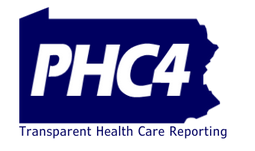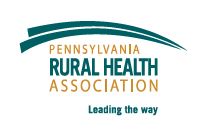- CMS: Medicare and Medicaid Programs: CY 2026 Payment Policies Under the Physician Fee Schedule and Other Changes to Part B Payment and Coverage Policies; Medicare Shared Savings Program Requirements; and Medicare Prescription Drug Inflation Rebate Program
- Public Inspection: CMS: Medicare and Medicaid Programs: CY 2026 Payment Policies under the Physician Fee Schedule and Other Changes to Part B Payment and Coverage Policies; Medicare Shared Savings Program Requirements; and Medicare Prescription Drug Inflation Rebate Program
- CMS: Medicare Program; Implementation of Prior Authorization for Select Services for the Wasteful and Inappropriate Services Reduction (WISeR) Model
- Public Inspection: CMS: Medicare Program: Implementation of Prior Authorization for Select Services for the Wasteful and Inappropriate Services Reduction Model
- CMS: Secretarial Comments on the CBE's (Battelle Memorial Institute) 2024 Activities: Report to Congress and the Secretary of the Department of Health and Human Services
- HHS: Patient Protection and Affordable Care Act: Marketplace Integrity and Affordability
- Public Inspection: HHS: Patient Protection and Affordable Care Act: Marketplace Integrity and Affordability
- Increased Risk of Cyber Threats Against Healthcare and Public Health Sector
- HRSA Announces Action to Lower Out-of-Pocket Costs for Life-Saving Medications at Health Centers Nationwide
- Announcing the 2030 Census Disclosure Avoidance Research Program
- Eight Hospitals Selected for First Cohort of Rural Hospital Stabilization Program
- CMS: Medicare Program; Hospital Inpatient Prospective Payment Systems for Acute Care Hospitals and the Long-Term Care Hospital Prospective Payment System and Policy Changes and Fiscal Year 2026 Rates; Requirements for Quality Programs; and Other Policy Changes; Correction
- CMS: Medicare Program; Hospital Inpatient Prospective Payment Systems for Acute Care Hospitals and the Long-Term Care Hospital Prospective Payment System and Policy Changes and Fiscal Year 2026 Rates; Requirements for Quality Programs; and Other Policy Changes; Correction
- CMS: Medicare and Medicaid Programs; Contract Year 2026 Policy and Technical Changes to the Medicare Advantage Program, Medicare Prescription Drug Benefit Program, Medicare Cost Plan Program, and Programs of All-Inclusive Care for the Elderly; Correction
- CMS: Medicare and Medicaid Programs; Contract Year 2026 Policy and Technical Changes to the Medicare Advantage Program, Medicare Prescription Drug Benefit Program, Medicare Cost Plan Program, and Programs of All-Inclusive Care for the Elderly; Correction
Representatives Reintroduce 340B PATIENTS Act in Congress
Congresswoman Doris Matsui (D-CA) and Senator Peter Welch (D-VT) introduced the 340B PATIENTS Act, legislation that would protect and strengthen the 340B program by codifying 340B providers’ ability to use contract pharmacies to dispense 340B discounted drugs. This would ensure that 340B patients are able to pick up their prescriptions at any local pharmacy, and that safety-net providers are able to continue providing expanded medical and social services to their communities using their 340B discount savings.
Pharmacies Are Disappearing Across Pennsylvania; Operators Blame Broken Payment System

“Hundreds of pharmacies across Pennsylvania have gone out of business in recent years, data obtained by Spotlight PA show, and pharmacists say legislation passed last year to help isn’t doing enough to stave off more closures.”
Click here for the full article.
New Pennsylvania Cardiac Procedures Report Released

The Pennsylvania Health Care Cost Containment Council’s (PHC4) Cardiac Procedures Report, displays results for six cardiac procedures performed in Pennsylvania acute care hospitals from January 1, 2022, through December 31, 2023. This report displays hospital-specific ratings for in-hospital mortality, readmissions, extended postoperative length of stay, volume of cases, and average hospital charges.
Barry D. Buckingham, PHC4’s Executive Director, strives to ensure PHC4’s reporting continuously brings value to the stakeholders it supports. “Providing as much insight as possible empowers professionals and patients in Pennsylvania with fact-based information to make informed decisions, which is at the core of our mission at PHC4.” Buckingham went on to state that PHC4 aims to go on supporting Pennsylvanians by continuously enriching its publicly available, fact-based, health care reporting.
The six procedure types reported in the Cardiac Procedures Report are coronary artery bypass graft (CABG), percutaneous coronary intervention (PCI) with and without a heart attack, surgical aortic valve replacement (SAVR), SAVR with CABG, and transcatheter aortic valve replacement (TAVR). Also included for these procedure types is data displaying statewide Medicare payments. Visualizations also offer insight within the Cardiac Procedures Report, like the graph below showing changes in the volume of cases from 2019 to 2023.
PHC4 is an independent council formed under Pennsylvania statute (Act 89 of 1986, as amended by Act 15 of 2020) in order to address rapidly growing health care costs. PHC4 continues to produce comparative information about the most efficient and effective health care to individual consumers and group purchasers of health services. In addition, PHC4 produces information used to identify opportunities to contain costs and improve the quality of care delivered.
For more information, visit phc4.org or review the full report here.
Introducing CDC-Funded Healthy Nonprofit Network for Community-Based Organizations

Is your nonprofit organization prepared for the rest of 2025 and beyond? Join the Healthy Nonprofit Network (HNN) – a new initiative created to support small, rural, and southern nonprofits working to build healthier communities.
The CDC-funded HNN is part of the Emory Centers for Public Health Training and Technical Assistance at Emory University’s Rollins School of Public Health. The network helps community-based organizations thrive by providing essential training and support for organizational sustainability. HNN offers education, comprehensive assessment, training, and coaching in the following focus areas:
- Organizational development and process improvement
- Workforce development
- Partnership development and engagement
The HNN is national in scope but offers free services to all health-focused community-based organizations, with a special focus on small organizations serving rural areas in under-resourced communities. These services span across all public health issues, risk factors, and professional competencies.
Learn how to join here: https://healthyorgs.org/healthy-nonprofit-network-launch-webinar-on-demand/.
Report Highlights the Hidden Costs of Tooth Decay

Cavities aren’t just a bother—tooth decay is the most common chronic disease among children and adults, and it’s taking a painful toll on families across Pennsylvania. Check out the latest article from PCOH, “Tooth Decay is a Disease – And It’s Hurting Pennsylvania Families.”
National Survey Launched for Licensed Oral Health Professionals

The CareQuest Institute for Oral Health, the American Dental Hygienists’ Association, the American Dental Therapy Association, and the Oral Health Workforce Research Center are asking licensed, practicing oral health professionals to take part in a survey about knowledge, beliefs, and experiences with patient care delivery. The survey takes about 15 minutes to complete.
Pennsylvania Releases 2025–2030 Rural Health Plan
 The 2025-2030 Pennsylvania Rural Health Plan is a comprehensive roadmap to improve the health and well-being of rural residents across the state. This is the first stand-alone rural health plan in our state since 2000. Developed with input from rural community leaders, health professionals, academic institutions, and policymakers, the Plan identifies key priorities and action steps to address the unique health challenges and opportunities in Pennsylvania’s 48 rural counties. It places a strong focus on access to care, behavioral health, oral health, maternal health, workforce development, broadband connectivity, and health equity.
The 2025-2030 Pennsylvania Rural Health Plan is a comprehensive roadmap to improve the health and well-being of rural residents across the state. This is the first stand-alone rural health plan in our state since 2000. Developed with input from rural community leaders, health professionals, academic institutions, and policymakers, the Plan identifies key priorities and action steps to address the unique health challenges and opportunities in Pennsylvania’s 48 rural counties. It places a strong focus on access to care, behavioral health, oral health, maternal health, workforce development, broadband connectivity, and health equity.
Bill to Address Pennsylvania A Nursing Shortage Approved by House Committee
Legislation to support and sustain a strong, well-trained nursing workforce across Pennsylvania that was introduced by state Rep. Bridget Kosierowski was approved by the House Labor & Industry Committee on July 1. Kosierowski’s legislation would establish the Nursing Shortage Assistance Program within the Department of Labor and Industry and would provide grants to qualified nursing servicers to assist nursing students with securing post-graduation employment and repaying student loans incurred while obtaining a nursing degree from an educational institution located in the commonwealth. Read more about the bill.
New Study: Faculty Development in New and Emerging Rural Residency Programs
A recent study published in the Journal of Graduate Medical Education examines how newly funded rural residency programs are implementing faculty development, a critical element for accreditation and long-term program success. Among the 43 Rural Residency Planning and Development (RRPD) grant recipients reviewed, just over half engaged in some form of faculty development, with 37% offering structured, longitudinal programs and 51% reporting participation in activities like conferences or workshops. The findings highlight both the value and variability of faculty development strategies in rural settings and suggest a need for greater support and infrastructure to ensure consistent educator training across programs.
Final Recommendation Statement Released: Screening for Intimate Partner Violence and Caregiver Abuse of Older or Vulnerable Adults
The U.S. Preventive Services Task Force released a final recommendation statement on screening for intimate partner violence and caregiver abuse of older or vulnerable adults. The task force determined that clinicians should screen women of child-bearing age, including those who are pregnant and postpartum, for intimate partner violence. More research is needed to recommend for or against screening for caregiver abuse in older or vulnerable adults. The final recommendation is available here.
